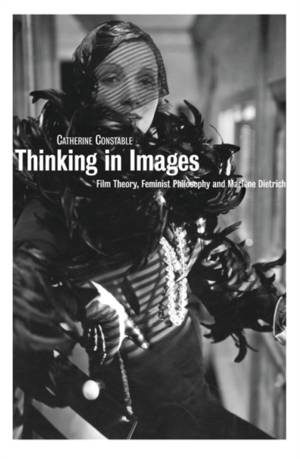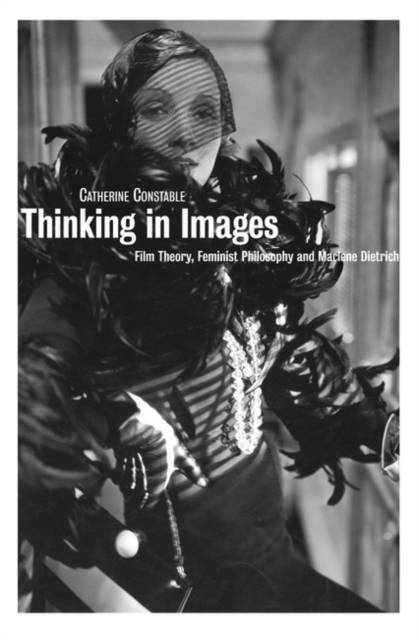
Je cadeautjes zeker op tijd in huis hebben voor de feestdagen? Kom langs in onze winkels en vind het perfecte geschenk!
- Afhalen na 1 uur in een winkel met voorraad
- Gratis thuislevering in België vanaf € 30
- Ruim aanbod met 7 miljoen producten
Je cadeautjes zeker op tijd in huis hebben voor de feestdagen? Kom langs in onze winkels en vind het perfecte geschenk!
- Afhalen na 1 uur in een winkel met voorraad
- Gratis thuislevering in België vanaf € 30
- Ruim aanbod met 7 miljoen producten
Zoeken
Thinking in Images: Film Theory, Feminist Philosophy and Marlene Dietrich
Catherine Constable
Paperback | Engels
€ 79,95
+ 159 punten
Omschrijving
Thinking in Imagesaddresses the current crisis in film theory by offering a new methodology for interrelating theory and film texts. Drawing on the groundbreaking work of Michele Le Duff, Catherine Constable argues that philosophy is reliant on sociocultural images, such as the figures of the veiled woman, the femme fatale, and the seductress. Constable traces the key role such female images play in the theorizations of beauty, art, and truth offered by Nietzsche and his successors: Jacques Derrida, Sarah Kofman, and Jean Baudrillard. Recognizing that images are crucial to theorizing means that film images have the capacity to challenge and change previous theoretical models. This is demonstrated by a case study of three films from the Dietrich/Sternberg cycle: The Scarlet Empress, The Devil Is a Woman, andShanghai Express.These detailed readings focus on the ways in which Dietrich's glamorous characters challenge the theorization of woman as a beautiful object, thus offering new ways of conceptualizing woman's role as the icon of beauty, art, and truth."
Specificaties
Betrokkenen
- Auteur(s):
- Uitgeverij:
Inhoud
- Aantal bladzijden:
- 208
- Taal:
- Engels
Eigenschappen
- Productcode (EAN):
- 9781844571017
- Verschijningsdatum:
- 3/02/2006
- Uitvoering:
- Paperback
- Formaat:
- Trade paperback (VS)
- Afmetingen:
- 157 mm x 233 mm
- Gewicht:
- 390 g

Alleen bij Standaard Boekhandel
+ 159 punten op je klantenkaart van Standaard Boekhandel
Beoordelingen
We publiceren alleen reviews die voldoen aan de voorwaarden voor reviews. Bekijk onze voorwaarden voor reviews.









